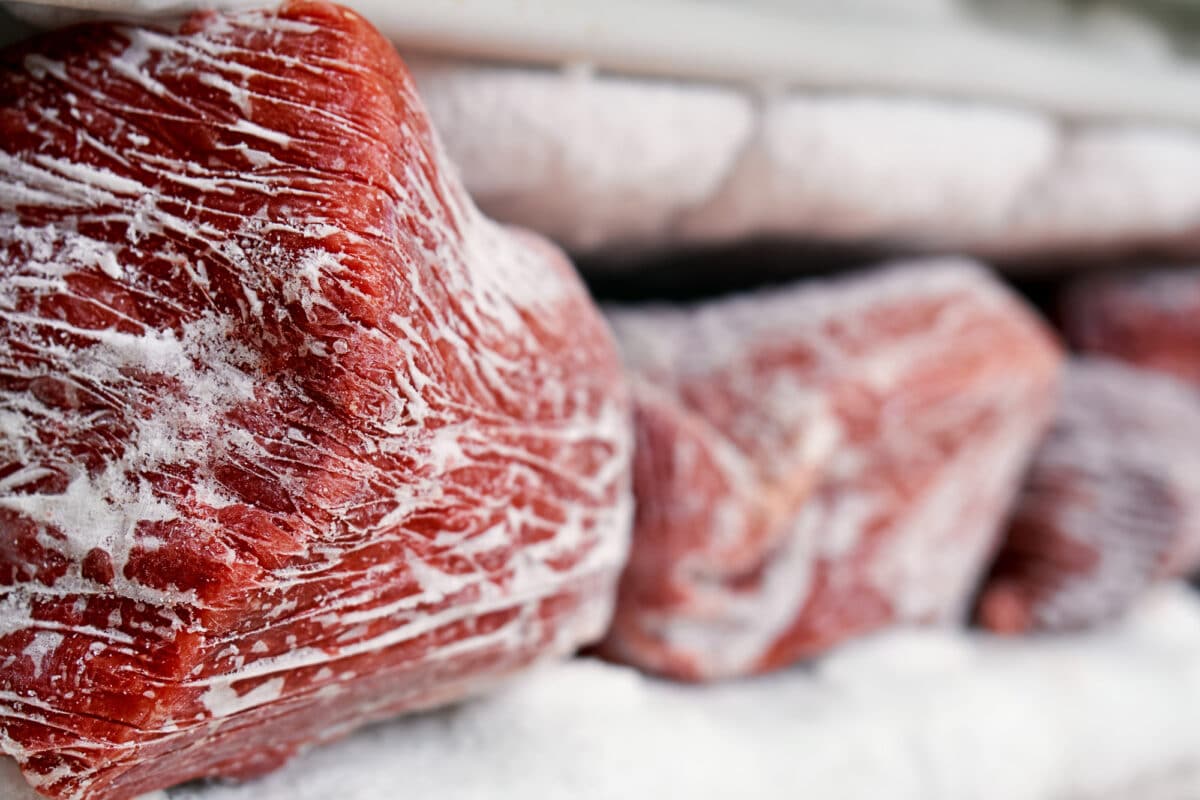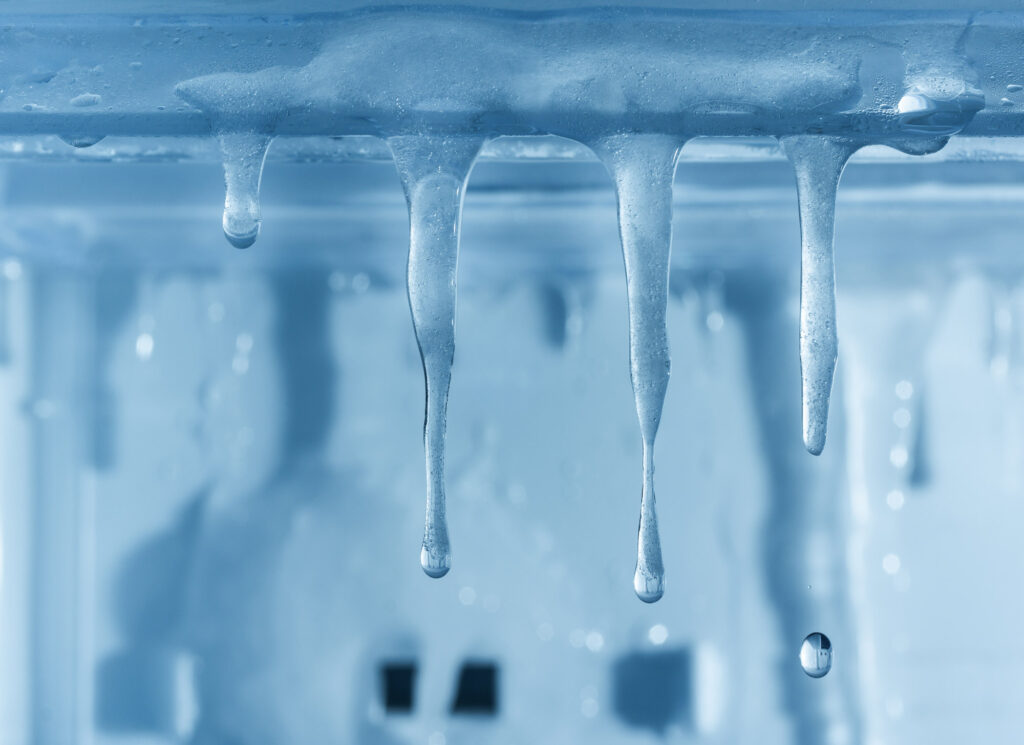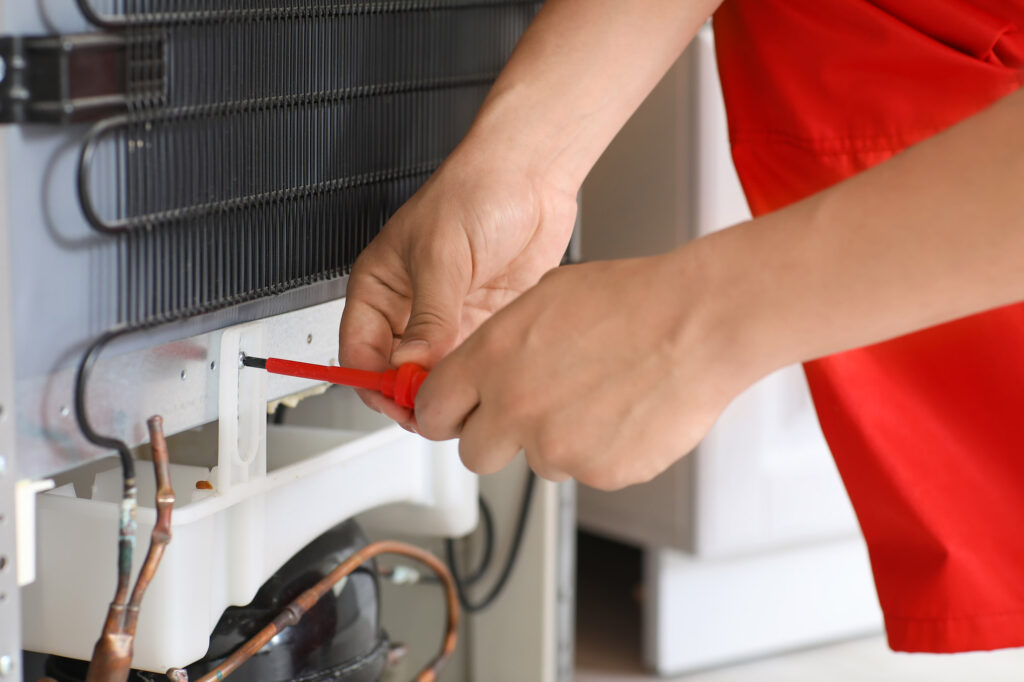Commercial Freezer Maintenance: 10 Undercounter Freezer Care Tips

Freezer maintenance might not be the most glamorous job on your kitchen task list, but it’s one of the most important. Regular maintenance helps you detect issues early so they don’t take you (or your customers) by surprise.
The ultimate goal of commercial refrigeration equipment is to prevent spoilage. Frozen food is safe food, and if your freezer undergoes temperature fluctuations, you could put your whole operation at risk.
What’s more, regular commercial freezer upkeep helps you keep things running cool and consistent with less energy. Your freezer will get a better ROI and last much longer with routine maintenance. Here’s the rundown on the 10 undercounter freezer maintenance tips you need to follow.
1. Is Your Freezer an Icesore? Keep it Clean.
Cleanliness is a commercial kitchen commandment. If your equipment is clean, you’ll avoid health code violations, cross-contamination, and food-borne illness (all very crucial).
Follow the cleaning procedures outlined in your manufacturer’s guide to ensure you use the right cleaning agents and practices. If your freezer is stainless steel, you may need a special cleaner to keep the exterior shined up and looking sharp.
2. Cold Cases: Looking at the Seals
One of the biggest issues with any refrigeration is a faulty seal. A tight door seal maintains the internal temperature and prevents warm air egress.
Look along the edges of your freezer and refrigerator door seals as part of your clean routine. Check all around the door seal for cracks and clean out any food particles, dust, or grease that may build up on the seal and prevent it from doing its critical job.
3. Let it Freeze: Checking and Maintaining Temperature Controls
Precise temperature control is, of course, an essential part of the commercial freezer’s job. The right freezing temps keep food up to safety and quality standards. To check that your freezer is meeting the mark, use a digital thermometer to compare the actual temperature inside the freezer with the set temperature on the thermostat. If there are discrepancies, check the manufacturer’s instructions.
Regular temperature checks help you reduce energy consumption and wear and tear on your freezer. Fluctuations in temperature are often one of the primary indicators that your freezer isn’t operating properly.
4. Shock and Thaw: Managing Defrost Cycles

Running a defrost cycle on your commercial freezer helps remove any ice buildup and frost from the evaporator coils. Air moisture condenses and freezes on the coils, creating frost. The buildup impedes heat transfer and forces your freezer to work harder.
Schedule defrost cycles regularly based on your usage and the environmental conditions around your freezer. Proper defrosting will help your freezer maintain consistent temperatures and operate efficiently.
5. The Tip of the Iceberg: Checking Refrigerant Levels
Refrigerant absorbs heat from the interior of your freezer and releases it outside. The substance moves through the system, changing from liquid to gas and back again. For your freezer to work properly, the appropriate refrigerant levels are required.
Low refrigerant can damage the compressor, the evaporator coils, and other essential system parts. If your freezer takes longer to cool, you notice frost and ice buildup on the coils, your freezer feels warm, or you hear hissing and bubbling noises, you may need to check for refrigerant issues. If you suspect the refrigerant is low, contact a professional who knows how to handle the specialized equipment safely.
6. Two Freeze in a Pod: Cleaning and Coil Maintenance
Coils play a vital role in maintaining the cooling performance of your freezer. When coils are dirty, airflow gets restricted, and the compressor must work harder to keep things cool. Avoid this issue by checking coils regularly (especially in an environment like the kitchen where dust can build up fast).
To clean condenser coils, follow the instructions from the freezer manufacturer. Some manufacturers recommend using a specific brand or type of coil cleaner; others may suggest using a vacuum or a damp cloth and warm water to gently clean the coils of your freezer (be sure first to unplug the electrical connections of your freezer completely).
7. Stay Cool Under Pressure: Troubleshooting Common Freezer Problems
There are several issues that impact your freezer’s performance, some of the most common include:
- Worn door seals: Causing air leaks and making your freezer work harder.
- Ice buildup on evaporator coils: Restricting airflow and lowering efficiency.
- Thermostat and temperature control issues: Impacting temperature settings and food safety.
- Noises and vibrations: Indicating a mechanical issue.
- Compressor malfunctions and refrigerant leaks: Causing poor cooling and system failure.
To troubleshoot these issues, the first step is to check the power supply and ensure the circuit breaker hasn’t been tripped. Inspect the door seals; clean and defrost the freezer to clear the coils. Verify and recalibrate the thermostat as needed. If the freezer continues struggling after taking these steps, you should contact a professional technician.
8. Freeze the Day: Scheduling Professional Maintenance Services

Should you need to call for professional maintenance, they can assist with more complex problems and emergency repairs. Refrigerant leaks, compressor failures, and electrical issues are jobs for an experienced pro.
Regular professional and preventative maintenance can help you stay on top of any potential problems and prevent more costly breakdowns from component failure. Work with your professional service provider to set up a regular freezer servicing schedule and maintenance plan. It’s a worthy investment to extend the life of your freezer equipment.
9. Breathe Freezely by Saving Energy
Regular, proper maintenance of your freezer is a necessary part of commercial kitchen upkeep that can really help you save on energy costs. When you routinely inspect areas of concern like the evaporator coil, door gaskets and seals, and temperature controls, you can detect and address issues early—issues that can ultimately add up on your energy bills.
The better maintained your freezer, the better it will perform. Refrigeration is often a big energy user in the kitchen, so ensuring your freezer is in optimal condition is the best way to save money on utilities (and prevent product loss due to quality concerns or food spoilage).
10. Set Your Mind at Freeze By Monitoring and Recording Performance Metrics

As you perform your freezer maintenance, documentation is critical. Regularly monitor and record the key performance metrics so you can identify any changes right away. A log should include temperature readings, defrost cycles, scheduled maintenance, and energy consumption.
Use digital thermometers, data loggers, and other technology to help automate the monitoring process, if needed. Consistent logging helps you ensure that you’re compliant with health codes and that your freezer will run efficiently for a long time.If you’re deciding on the best commercial undercounter freezers for your business, reach out to Eleven36 today. We offer delivery, installation, and equipment removal to ensure you’re set up for success. At Eleven36, we’re here to keep your food business cool!
